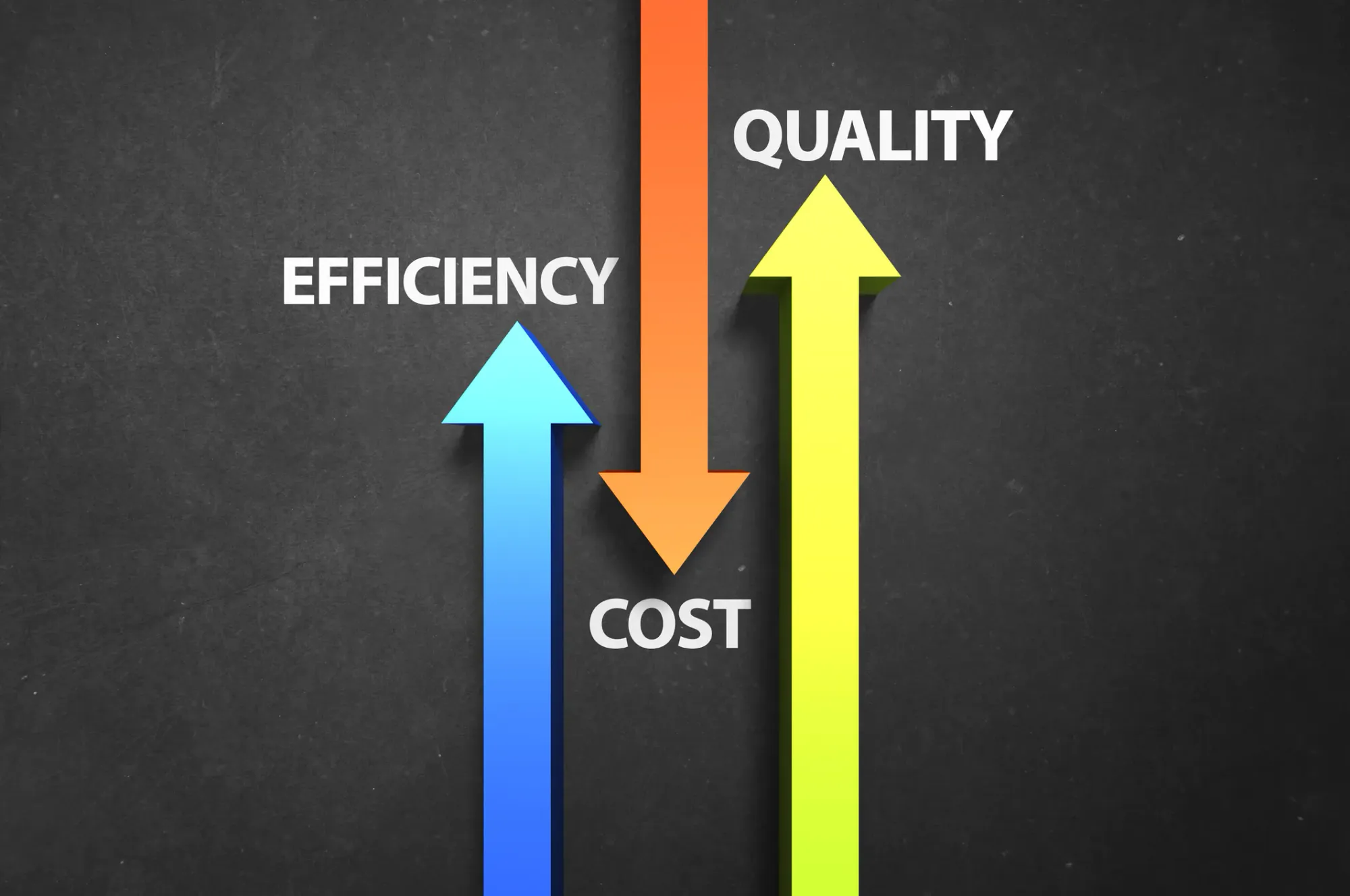Beyond Borders: International Finance Corporation's Impact On The World Economy

Introduction
The International Finance Corporation (IFC) plays a vital role in shaping the global economy through its initiatives and projects aimed at promoting private sector development and investments. As an integral part of the World Bank Group, the IFC seeks to address the challenges faced by developing countries and emerging markets, with a focus on sustainability and long-term economic growth.
In this blog post, we will explore the significant impact of the International Finance Corporation on the world economy, highlighting its key initiatives, contributions to emerging markets, and commitment to sustainable development. By delving into the success stories and economic indicators, we aim to showcase how IFC's interventions transcend borders and positively influence economies worldwide.
The Role of International Finance Corporation
The International Finance Corporation, established in 1956, operates with a mission to promote private sector investment and develop sustainable businesses in developing countries. By leveraging its financial resources, expertise, and global network, the IFC aims to bridge the development gap and create opportunities for people in need. Through partnerships with governments, businesses, and other organizations, IFC stimulates economic growth in areas where it is most needed.
IFC's key objectives include fostering economic stability, improving living standards, and reducing poverty by mobilizing investment capital, providing advisory services, facilitating access to markets, and promoting regulatory reform. By focusing on the private sector, IFC strives to unlock the potential for innovation, job creation, and entrepreneurship, ultimately transforming economies on a global scale.
IFC's Key Initiatives and Projects
IFC has been involved in numerous impactful projects and initiatives worldwide. Let's delve into some noteworthy examples that demonstrate the breadth of its impact:
1. Infrastructure Development in Africa
IFC has played a significant role in funding infrastructure projects across Africa, catering to the continent's growing needs. By investing in sectors such as transportation, energy, and telecommunications, IFC enhances connectivity, unlocks economic potential, and improves the overall business environment.
2. Women Entrepreneurship Support in South Asia
Recognizing the critical role of women in economic development, IFC has implemented several projects in South Asia to support women-owned businesses. These initiatives provide access to finance, mentorship, and business development services, empowering women entrepreneurs and fostering inclusive growth.
3. Renewable Energy Investments in Latin America
IFC is actively promoting renewable energy investments in Latin America, aiding countries in transitioning to clean energy sources. By financing wind, solar, and hydro projects, IFC not only contributes to reducing carbon emissions but also generates job opportunities and stimulates economic growth in the region.
These examples signify the diverse range of projects undertaken by IFC, spanning different regions and sectors, all contributing to the sustainable development of economies worldwide.
How IFC Supports Sustainable Development
IFC recognizes the significance of sustainability in long-term economic growth and actively integrates environmental and social considerations into its investment decisions. By focusing on responsible investing, IFC aims to maximize positive impacts while minimizing negative environmental and social effects.
One of the ways IFC supports sustainable development is through its Environmental and Social Performance Standards. These standards guide the assessment and management of environmental and social risks associated with IFC-funded projects. By adopting these rigorous standards, IFC ensures that its investments align with global best practices, mitigating potential adverse effects on the environment and local communities.
Furthermore, IFC facilitates the adoption of sustainable business practices by providing advisory services and capacity-building support to client companies. By helping businesses improve their environmental and social performance, IFC promotes the integration of sustainability into core business strategies, resulting in long-term benefits for the companies themselves and the wider economy.
Stand out from your competitors by presenting invoices with a unique and professional appearance.
Invoice Temple is the ultimate invoicing solution designed exclusively for entrepreneurs.
Access a diverse selection of invoice templates that cater to different business needs and enhance your brand image.
Sign up and enjoy invoicing for free.
Available on google play store for android and PCs.

IFC's Contribution to Emerging Markets
Emerging markets often face unique challenges in attracting investments, stimulating economic growth, and reducing poverty. IFC plays a crucial role in addressing these challenges and contributing to the development of emerging market economies.
One way IFC supports emerging markets is through its investment mobilization efforts. By partnering with commercial banks, institutional investors, and other financiers, IFC helps attract capital to countries and sectors that may otherwise struggle to access financing. This mobilization of private sector investments stimulates economic growth, creates jobs, and catalyzes further investments in these markets.
Furthermore, IFC provides advisory services to governments and regulatory bodies to foster an enabling business environment. By promoting regulatory reforms and improving investment climates in emerging markets, IFC helps create a level playing field, reduces bureaucracy, and encourages both domestic and foreign investments.
The Economic Benefits of IFC's Interventions
The interventions and initiatives undertaken by IFC have yielded significant economic benefits for countries and industries worldwide. Let's explore some key economic indicators that demonstrate IFC's positive influence:
1. Increased GDP Growth: Through its investments and support to the private sector, IFC has contributed to increased GDP growth rates in various countries. By spurring economic activity, promoting entrepreneurship, and facilitating job creation, IFC's interventions have helped uplift economies and improve living standards.
2. Enhanced Trade and Exports: IFC's involvement in developing critical infrastructure and facilitating access to finance has enabled businesses to expand their operations and participate in international trade. This has led to increased exports and improved competitiveness for countries benefiting from IFC's initiatives.
3. Reduced Poverty and Inequality: IFC's focus on sustainable and inclusive development has significantly contributed to poverty reduction and reduced economic inequality. By supporting small and medium-sized enterprises (SMEs), women-owned businesses, and marginalized communities, IFC helps create economic opportunities and reduce social disparities.
These examples highlight the transformative impact of IFC's interventions, illustrating how its work goes beyond financial investments to deliver lasting economic benefits.
Criticisms and Controversies Surrounding IFC
While IFC's contributions to the world economy are undeniable, like any large organization, it has faced criticisms and controversies. Let's address some of the common criticisms against IFC's approach and explore their responses:
1. Lack of Transparency
IFC has faced criticism for a perceived lack of transparency in its operations. Critics argue that the organization should disclose more information about its investments, decision-making processes, and social and environmental impacts. In response, IFC has acknowledged the importance of transparency and has made efforts to improve disclosure practices, including publishing more data and engaging with stakeholders.
2. Impact on Local Communities
Some critics claim that IFC-funded projects have led to negative impacts on local communities, such as displacement of vulnerable populations and environmental degradation. IFC has taken these concerns seriously and developed its Environmental and Social Performance Standards to address potential risks. By requiring project developers to meet these standards, IFC aims to ensure that projects deliver positive development outcomes while minimizing negative impacts.
End Line
The International Finance Corporation, with its commitment to private sector development, sustainable investments, and poverty reduction, has made a significant impact on the world economy. Through its key initiatives and projects across diverse sectors and regions, IFC has transformed economies, stimulated growth, and improved living standards.
By prioritizing sustainability and responsible investing, IFC remains at the forefront of driving positive change while mitigating potential risks. The economic benefits resulting from IFC's interventions are evident in increased GDP growth, enhanced trade, and reduced poverty levels.
It is crucial to acknowledge the criticisms and controversies surrounding IFC, as they provide an opportunity for continuous improvement and accountability. Through transparency, stakeholder engagement, and adherence to strict environmental and social standards, IFC can address these concerns and further enhance its impact.
As we move towards a more interconnected and globalized world, the International Finance Corporation's work continues to be instrumental in shaping the world economy, facilitating economic progress, and creating opportunities beyond borders.
Also Read...




